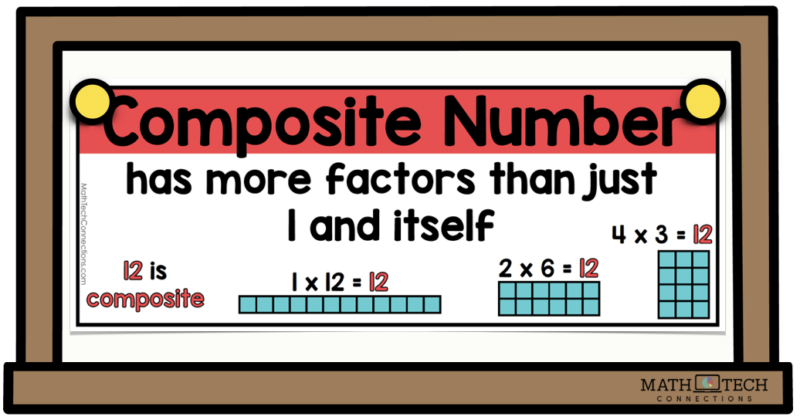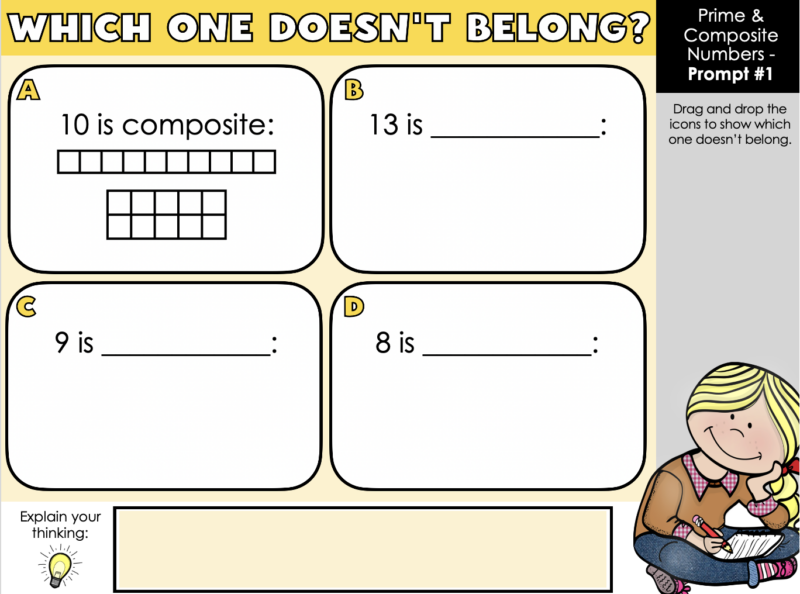
Composite numbers have more than 2 factors. Composite numbers are multiples and are divisible by a number other than 1.
- 0 is neither not prime or composite.
- 1 is neither prime nor composite.
12 has 6 factors: 1, 2, 3, 4, 6, & 12, so 12 is a composite number.

Numbers that are divisible by 2 automatically make that number (besides 2) composite.
Is 16 composite?
Yes.
- 16 is divisible by 2.
- 16 is a multiple of 8.
The number 16 is composite.
Is 49 composite?
Yes.
49 is an odd number, but it is still composite.
49 is divisible by 7.
49 ÷ 7 = 7
49 has more factors than just 1 and itself.
- 1 x 49 = 49
- 7 x 7 = 49
Is 17 composite?
No.
17 has exactly 2 facts – 1 and 17.
- 1 x 17 = 17
17 is prime.
Divisibility Rules
Every number that meets any of the divisibility rules from 2 down (except for 2) is composite.
| Divisible by? | Rule |
|---|---|
| 1 | Every number is divisible by 1 and itself. |
| 2 | Every even number (with 0, 2, 4, 6, or 8 ones) is divisible by 2. |
| 3 | The sum of the number’s digits will be divisible by 3: 3, 6, 9, etc. |
| 4 | Use strategies to check for divisibility by 4. Every other even number from 4 is divisible by 4. |
| 5 | Numbers that end in 5 or 0 are divisible by 5. |
| 6 | Numbers are divisible by 6 if they are divisible by 2 AND 3. |
| 7 | Use strategies to check for divisibility by 7. |
| 8 | Use strategies to check for divisibility by 8. |
| 9 | The sum of the number’s digits will be divisible by 9. |
| 10 | Numbers with 0 ones are divisible by 10. |
Practice Problems
True or False?
The number 2 is even, so it’s a composite number.
Select the composite numbers.
Select the composite numbers.
